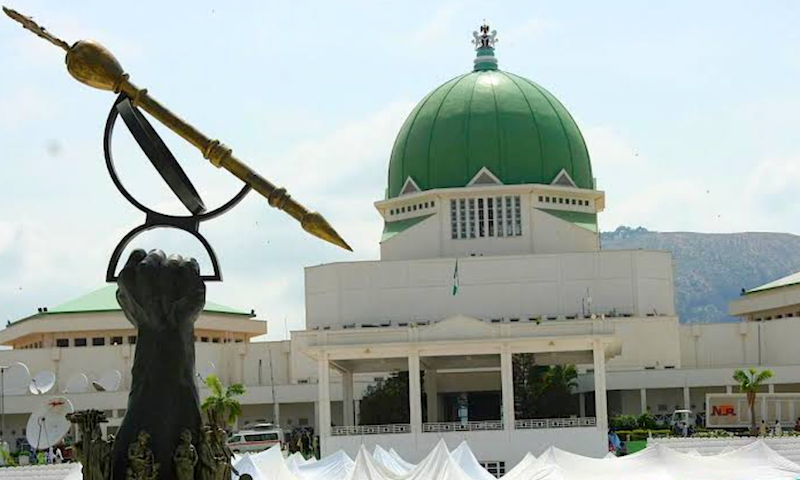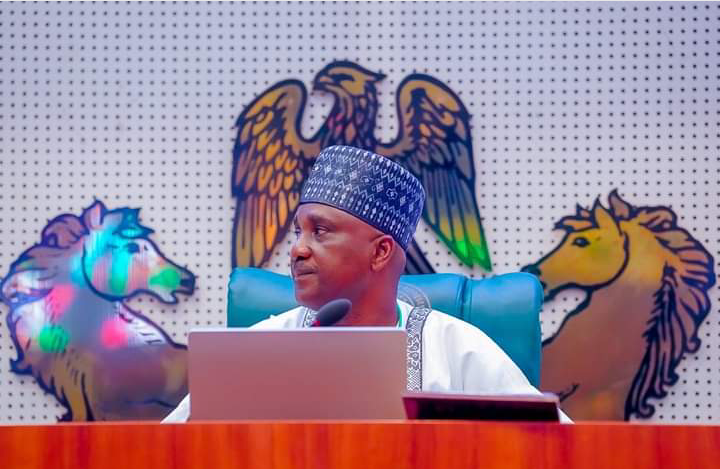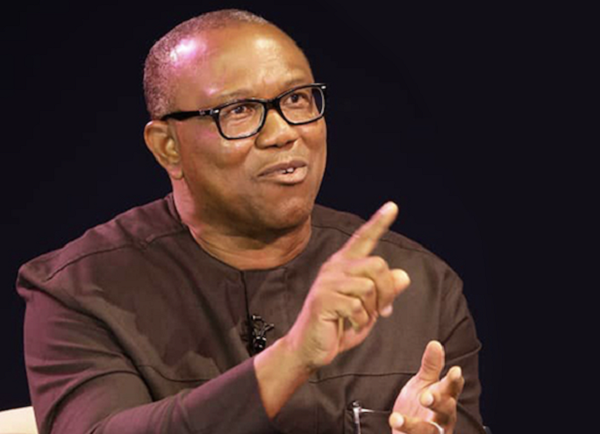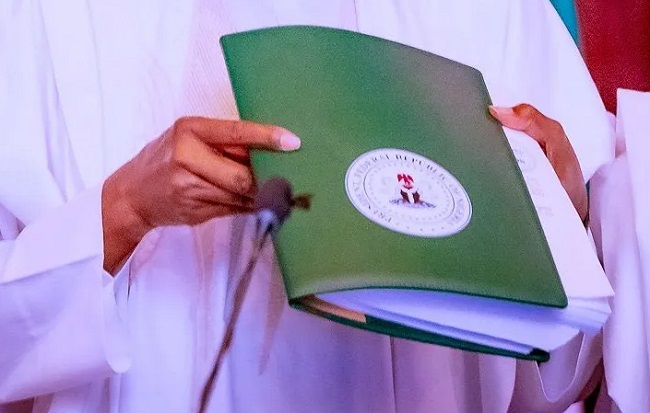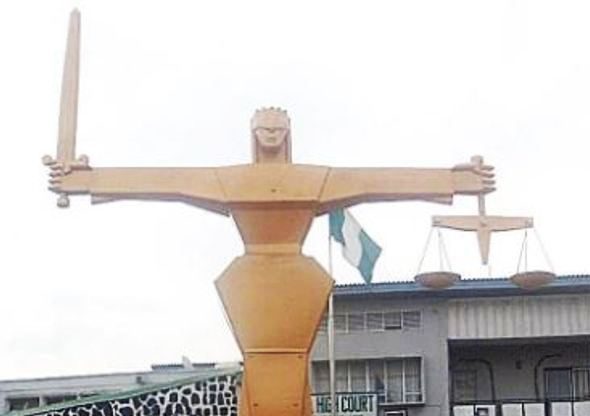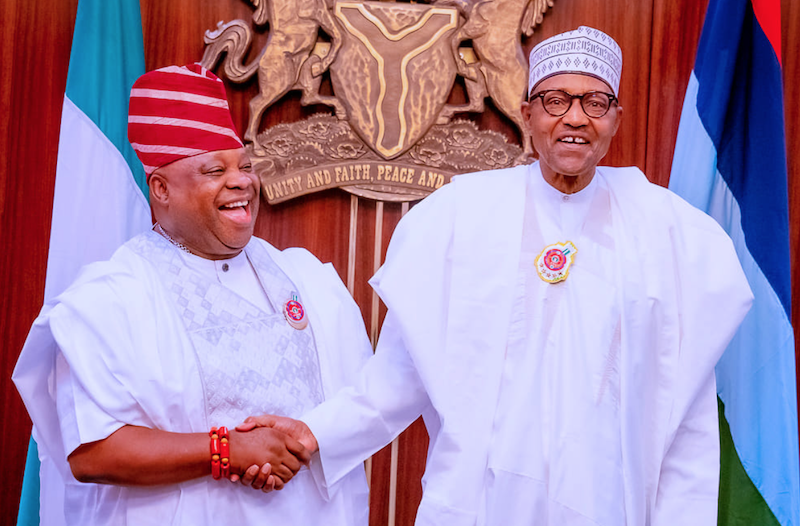Speaker of the House of Representatives Rt. Hon. Tajudeen Abbas has said part of the priority legislation before the House in the coming 2024 is the review of the Electoral Act, 2022.
Speaker Abbas said the Act, as it is today, has made Nigeria’s electoral system to be over dependent on the judiciary.
“The outcomes of elections should be decided at the polling unit and not in a courtroom. The ‘over-judicialisation’ of electoral outcomes has greatly undermined public confidence and could erode the legitimacy of political leadership if not quickly and adequately addressed.
“The citizens’ town hall on electoral reforms made far-reaching recommendations that would be considered in amending the Electoral Act,” he stated.
Speaker Abbas made this known in his address at the opening of plenary on Saturday, the last sitting for 2023.
The Speaker noted that the House recognised the importance of electoral reforms in strengthening democratic institutions.
Consequently, he said the legislative chamber took the lead in soliciting citizens’ input on the Electoral Act 2022 and their recommendations to strengthen it, towards delivering more free and fair elections, and to “reduce the judiciary’s influence on the electoral process.”
He noted that as representatives of the people, it was essential that the House involved citizens in its key processes and decision-making, adding that it was in line with this that the House organised a citizens’ town hall on the 2024 Appropriation Bill, where Nigerians were given the opportunity to express their views on how the budget could better address the specific needs of all citizens, especially those at the grassroots.
He stated: “The House remains committed to engaging citizens in its activities and ensuring the law-making process is open and inclusive. In the coming years, the budget will be taken to the people at the constituency levels to allow them also to make inputs.”
The Speaker stated that since its inauguration on June 13, 2023, the 10th House has been “a beacon of democratic values and a testament to the power of collaborative governance.”
He said the lawmakers took the oath of office “at a particularly challenging period in our nation’s history,” stating that, “There is no need to repeat these challenges, given that they are too well familiar to us.”
Speaker Abbas stressed that the House remains responsive and committed in its efforts towards ameliorating “the suffering of our constituents and contributing to Nigeria’s overall peace and development.”
Collectively, the Speaker said members of the House had lived up to the mantra of the ‘People’s House’.
“We have deliberated on crucial matters that impact the lives of every Nigerian and worked tirelessly to enact laws that will shape the future of our great nation.
“We considered a wide range of issues, including peace and security, social welfare, healthcare, education, infrastructure development, economic growth, and more.
“Through robust debates, bipartisan collaboration, and dedication to our constitutional responsibilities, we have passed crucial bills and resolutions that will shape the trajectory of our nation for years to come,” he said.
The Speaker said in the last six months, the House recorded some legislative landmarks that have the potential of impacting the lives of the citizens positively.
“Our legislative outputs in the last six months are remarkable,” Speaker Abbas said, noting that the House received and considered 962 bills, over 500 motions, and 153 petitions.
“Of these numbers, 120 bills passed Second Reading stage and “are currently undergoing further review and refinement to address some of the concerns raised during the debates.”
The Speaker added that another 120 bills had been referred to committees for in-depth analysis. “We have also successfully passed many other bills, which have been transmitted to the Senate for concurrence,” he stressed, notable among which are the Electricity Act (Amendment) Bill, 2023; the Federal Audit Service Act (Amendment) Bill, 2023; 2022 Supplementary Appropriation Act (Amendment) Bill, 2023; and the Oath Act (Repeal and Enactment) Bill, 2023.
Other critical bills passed by the House include the Control of Small Arms and Light Weapons Bill, 2023; Federal Fire and Rescue Service Bill, 2023; Administration of Criminal Justice Act (Repeal and Enactment) Bill, 2023; Niger Delta Development Commission Act (Amendment) Bill, 2023; Nigerian Medical Research Council (Establishment) Bill, 2023; Nigerian Peace Corps (Establishment) Bill, 2023; and more recently, the South East Development Commission (Establishment) Bill, 2023.
Speaker Abbas stressed that the Defence Industries Corporation of Nigeria (Repeal and Re-enactment) Bill 2023 that the House passed was assented to by President Bola Ahmed Tinubu on November 23, 2023.
He noted: “It repealed the 1964 legislation and replaced it with a more contemporary legislation that empowers the Defence Corporation to manufacture, store and dispose of ordinance.”
The Speaker stated: “All these bills are intended to provide immediate relief and long-term solutions to the challenges that have plagued our society. Through these bills, we aim to empower our citizens, enhance social justice, promote economic growth, and promote peace and security.
“Over the same period, the House received and resolved over 500 motions, many of which brought to the attention of the House and the nation pressing matters affecting the people. I have always considered motions to be one of the most potent tools of legislative representation.
“They show that the legislature, better than any other institution, is best placed to articulate the needs of the people and how to address them. Notable motions the House considered include oil theft, student loans, job racketeering, JAMB, firearms, COVID-19 fund mismanagement, 3 per cent contribution to host communities and the petroleum subsidy regime.
“In response to the issues raised, the House constituted ad hoc committees to conduct investigative hearings and make recommendations for necessary legislative actions. I am glad to announce that out of the 30 ad hoc committees, 25 have laid their reports before the House for consideration, while four have been considered. In addition to bills and motions, the House also received 153 petitions, which are receiving necessary legislative actions.”
Speaker Abbas also lamented that the House suffered “some misfortunes,” including the deaths of member-elect representing Jalingo/Yorro/Zing Federal Constituency of Taraba State, Ismaila Maihanci; Hon. Abdulkadir Danbuga (Isa/Sabon Birnin Federal Constituency of Sokoto State); Mojisola Ayobami, the young daughter of Hon. Benjamin Adeyemi Olabinjo; and the father of Hon. Solomon Wombo, His Royal Highness, the Ter Katsina-Ala, Dr. Benjamin Fezan Wombo.
“On Wednesday, 27th December, 2023, we also received with shock and sadness news of the demise of the Rt. Hon. Ghali Umar Na’Abba, Speaker of the 4th House of Representatives. Hon. Na’Abba was an icon of the legislature and a dedicated lawmaker and patriot,” he said, after which the lawmakers rose for a minute in silence in their honour, while the Speaker prayed for the souls of the deceased rest in peace.

